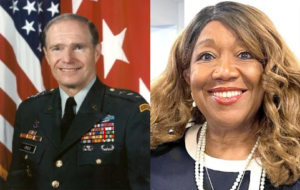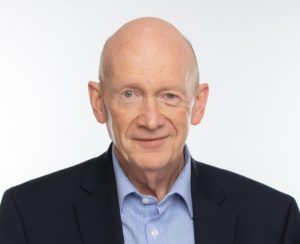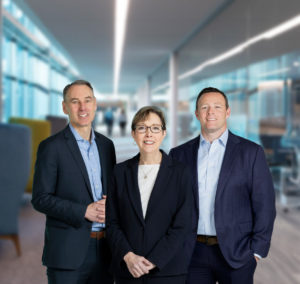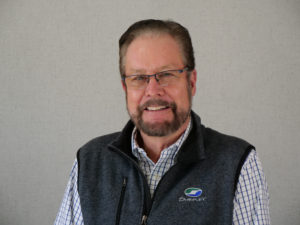The pandemic, the Great Resignation and the remote worker have altered how businesses are run and what it takes to lead an organization.
Times have certainly changed since Tony Shepley and his partner started his business, famously with “a used lumber truck, $4,000 and an idea that there was a need for another lumberyard in Hyannis.”
In January, Shepley (which grew to become the only lumberyard remaining in the area) entered into a partnership with Kodiak Building Partners, a $2 billion company with resources the Hyannis-based business has never had before, such as increased access to capital and enhanced resources in IT, finance, compliance, and benefits administration and procurement.
In the Cape Cod and Plymouth region, “locally owned and operated” is a revered mantra and on Cape Cod, 90 percent of the businesses are small businesses and proud of it. However, Shepley has found a great match with a national company, fusing the best of both worlds.
“We are allowed and encouraged to operate with decision-making done locally and no centralization of sales, purchasing, or operations,” emphasizes Shepley. “In the nine months post-sale, people say that the company feels very much the same from a customer and employee standpoint. Kodiak valued us for who we are and how we operate and they have worked not to change how we look and feel.”
As the region continues to come to terms with life after the pandemic, which has resulted in labor shortages, business closures and dealing with remote vs. onsite workplaces, we asked some business leaders to reflect on changes within their companies and what makes a great leader.
Martha R.A. Fields, Labor Consultant, Author, CEO
Martha R.A. Fields is leading the National Leadership Summit next month on Cape Co). The summit will bring together local and national executives, board members, business owners, and leaders to discuss and learn from experts about “Preventing Labor Shortages Through Leadership Excellence.” Fields is the former President of the Boston Human Resources Association and was a vice president of a Harvard Medical School teaching hospital. She now operates her own company, OKI ME, LLC, on Cape Cod and in Boston. It provides worldwide clients with consulting, coaching, educational programs, book signings and speaking engagement services.
 The author of eight books, she has written extensively about labor shortages and the best ways to find employees including considering older workers and retirees and hiring from within. She believes that many leaders focus on external recruitment, but the problem is that with low unemployment rates, not a lot of people are seeking employment. Research show that the number one way people find jobs is through networking with people in companies with job vacancies. Employers therefore should focus more on turning current, satisfied employees, into “goodwill ambassadors,” which is the best way to attract new hires.
The author of eight books, she has written extensively about labor shortages and the best ways to find employees including considering older workers and retirees and hiring from within. She believes that many leaders focus on external recruitment, but the problem is that with low unemployment rates, not a lot of people are seeking employment. Research show that the number one way people find jobs is through networking with people in companies with job vacancies. Employers therefore should focus more on turning current, satisfied employees, into “goodwill ambassadors,” which is the best way to attract new hires.
Leaders also need to think about internal recruitment and retention. Given changing workforce trends like remote and hybrid working, they may need to improve their leadership skills to create a climate that encourages outstanding employees to remain on the job and reach their potential.
“The bottom line is that leadership at the highest level of the organization needs to understand that hiring and labor prevention is not just a job for HR,” she says. “Studies are showing that some leaders have yet to understand the current needs of their staff.
Today, top talent have job options and they demand flexibility and bosses and organizations who care about them. They don’t want to be in Zoom meetings and constantly working during their time off. They also are refusing to perform work for which they are not compensated, and leaving bosses who practice the “my way or the highway school of leadership.”
What workers do desire, Fields says, are leaders to help them find purpose, work and well-being success. To prevent labor shortages, organizations should create mission-driven companies and an enjoyable environment where staff feel engaged. They should also figure out what jobs they need now and in the future then figure out how to increase the skillsets of current staff to fill them.
PRfirst, Marshfield
Jim Farrell, founder of PRfirst, turned over the reins of his Marshfield company this year to Nicole Hales, naming her president of the firm he launched in 1998.
 “The leadership change provides PRfirst the opportunity to celebrate many anniversaries beyond the 23 that we did under my ownership,” says Farrrell, who will retain the title of founder and continue his role in business development, account management and overall growth strategy for the firm.
“The leadership change provides PRfirst the opportunity to celebrate many anniversaries beyond the 23 that we did under my ownership,” says Farrrell, who will retain the title of founder and continue his role in business development, account management and overall growth strategy for the firm.
Hales, who joined the company 11 years ago as an Account Executive, was instrumental in the firm’s growth and development over these years and well known to its clients and vendors, he says.
“Accordingly, the transition was very smooth and easy for everyone to accept,” says Farrell. “She is the ideal choice to take the company forward through its 25th and 30th anniversaries and beyond. She is doing a great job as the head of the company, and I’m enjoying my new role with PRfirst as a business development person who sometimes dives in to help with accounts when requested. My official title is founder, but my unofficial one is cheerleader.”
 Hales feels flexibility is an important quality for today’s leaders.
Hales feels flexibility is an important quality for today’s leaders.
“As a leader, I think it’s definitely important to be strategic and plan ahead, but flexibility is just as crucial – being ready to adapt those plans, put things on hold, or go in a new direction entirely,” she says. “Additionally, communication and honesty are two leadership traits that have always been important and are even more so in today’s environment. Leaders need to build trust and togetherness – through respect, through purpose, and through humility.”
Hales hopes to build on Farrell’s success and has absorbed his management style.
“He’s incredibly generous with his time and knowledge, and over the last couple of years in particular, before I took over, I had the opportunity to ask him about how he handled certain situations and why, to better prepare myself for this post,” she says. “The industry itself has changed a great deal over the last two-plus decades, and I think hearing about how he adapted over the years, and seeing it firsthand as well, has allowed for a certain continuity of leadership that will allow PRfirst to continue to flourish as we simultaneously build on our strengths while being ready for changes big and small.”
Bob Cody, Executive Director, Leadership Cape Cod
Leadership Cape Cod’s mission is to develop and connect a diverse cohort of leaders to foster an engaged, sustainable, and inclusive Cape Cod. For 30 years, its core program has been the Community Leadership Institute, a six-month program focused on key areas of life on the Cape with sessions led by local leaders working to solve the region’s most pressing issues. Only 30 applicants are admitted (CLI 2023 applications are being accepted as of Sept. 30 for the 2023 Jan. 4-June 22 program).
Communication is the most important skill for a leader to possess, says Cody, a former executive who also chairs Greater Hyannis Area Chamber of Commerce.
“You have to be very transparent, open and consistent,” says Cody. “Working through change is the biggest challenge for today’s leader. You have to talk about it and do something about it.”
Cody is especially concerned about the gap between the workforce and housing that exists on Cape Cod and believes leaders should advocate for workforce housing.
Cape Cod 5
This past spring, Dorothy Savarese, Cape Cod 5’s first woman president and CEO, announced her impending retirement in May 2023. She transitioned out of her role as CEO in May of this year and will continue on as chair of the board until her planned retirement next year.

Savarese had been Cape Cod 5 Chair and CEO for the past 17 years during which time she led the Bank to more than triple in size from $1.4 billion in assets with 295 employees serving customers from 16 locations to $4.6 billion in assets with 550 employees and 26 locations. Cape Cod 5 is the top mortgage lender and holds the leading deposit market share in Barnstable County, with continued growth on Nantucket and Martha’s Vineyard and recently announced plans for continued expansion in Southeastern Massachusetts with two new locations in Plymouth.
“I had always considered my role as that of a steward of Cape Cod 5, so I was pleased to able to hand leadership of the organization to a team that takes that responsibility as seriously and sees it in the same way,” says Savarese.
Matthew S. Burke, who previously served as Co-President of Cape Cod 5, was named CEO at the bank’s annual meeting in May. Burke intends to build on the strengths that have made Cape Cod 5 a top workplace and customer service leader.
“As a top employer in our region, Cape Cod 5 works each and every day to support our employees and their efforts to serve our customers and communities,” says Burke. “Our collaborative and inclusive culture allows us to continue to adapt and evolve to meet the ever-changing needs and expectations of our customers while providing our employees with flexibility to balance their lives. We offer many opportunities for employees to share their ideas and feedback, such as through weekly Town Hall meetings and an internal communication platform, so they continually feel connected and engaged with the bank and its mission.”
Tony Shepley, President, Shepley Wood Products
Tony Shepley feels leadership is a consistent, practiced state that’s always under construction and leaders should always seek ways to improve, regardless of kudos or compliments. It’s also important to set an example and motivate and not just dominate others in the organization.
 “A good leader should be able to admit when they’re wrong and accept the advice of those who might be right,” he says. “A good leader should always be aiming higher with their sights set on becoming a great leader. Good leadership is built piece by piece from experience, blood, sweat and tears. It is not born ready-made, it is forged with time and often through turmoil. Good leadership is a calling, not an award.”
“A good leader should be able to admit when they’re wrong and accept the advice of those who might be right,” he says. “A good leader should always be aiming higher with their sights set on becoming a great leader. Good leadership is built piece by piece from experience, blood, sweat and tears. It is not born ready-made, it is forged with time and often through turmoil. Good leadership is a calling, not an award.”


























